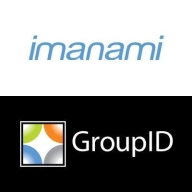

Imanami GroupID and Tenable Cloud Security operate within the realms of identity management and security. Tenable seems to have the upper hand due to its robust security features, especially in cloud environments.
Features: GroupID offers automated group management, integration with existing systems, and efficient identity lifecycle management. Tenable Cloud Security provides advanced vulnerability scanning, threat detection, and compliance tracking capabilities.
Ease of Deployment and Customer Service: Tenable provides extensive customer support and comprehensive documentation, aiding in its complex deployment. GroupID is known for its simple deployment and user-friendly approach, along with responsive support.
Pricing and ROI: GroupID is often praised for lower upfront costs and quick ROI with minimal setup barriers. Tenable Cloud Security justifies its higher cost through heightened security features and long-term benefits in cloud infrastructure protection.


Groups don’t live forever. Project teams disband, departments re-organize, and employees change status. GroupID from Imanami leverages the pervasiveness of Microsoft® Active Directory and empowers IT professionals with the tools needed to effectively provision and manage users. Users can be quickly entered into the correct distribution and security groups, and are easily managed across multiple systems.
There Are Three Main Benefits To A Complete Group Management Solution:
Groups Are Never Out Of Date.
Users are empowered to solve common problems independently. Security and access aren’t compromised. IT is empowered with the right tools to help employees. Staff productivity goes up. What more could you want?
Tenable Cloud Security is a comprehensive solution designed to help organizations secure their cloud environments across various platforms, including AWS, Azure, and Google Cloud. It offers continuous visibility, compliance management, and threat detection to ensure that cloud infrastructure and applications are protected from vulnerabilities and misconfigurations.
Tenable Cloud Security exemplifies a comprehensive Cloud-Native Application Protection Platform (CNAPP) by providing a unified solution that covers the entire cloud security lifecycle, from development to runtime. This platform is designed to address vulnerabilities, misconfigurations, threats, and compliance risks across multi-cloud environments, making it an essential tool for organizations adopting cloud-native architectures. In practice, Tenable Cloud Security integrates security into the development process through its shift-left approach, particularly with Infrastructure as Code (IaC) security. This ensures that security measures are embedded early in the development lifecycle, allowing teams to identify and mitigate vulnerabilities before they reach production. Once in production, the platform continues to provide real-time visibility into cloud environments, enabling continuous monitoring and proactive threat detection.
The solution's comprehensive protection spans various aspects of cloud security, including the identification and remediation of misconfigurations, automated compliance management, and advanced threat intelligence. By automating these processes, Tenable Cloud Security reduces the manual effort required to manage cloud security, freeing up resources for more strategic initiatives.
What are the key features of Tenable Cloud Security?
What are the benefits of using Tenable Cloud Security?
Tenable Cloud Security is particularly valuable in industries with stringent regulatory requirements, such as finance, healthcare, and retail. For example, in the financial sector, it helps organizations ensure compliance with regulations like PCI-DSS while safeguarding sensitive data across cloud environments.
In summary, Tenable Cloud Security is a robust CNAPP solution that integrates security throughout the cloud lifecycle, providing comprehensive protection and operational efficiency for cloud-native environments.
We monitor all Identity and Access Management as a Service (IDaaS) (IAMaaS) reviews to prevent fraudulent reviews and keep review quality high. We do not post reviews by company employees or direct competitors. We validate each review for authenticity via cross-reference with LinkedIn, and personal follow-up with the reviewer when necessary.